The risks of study drugs
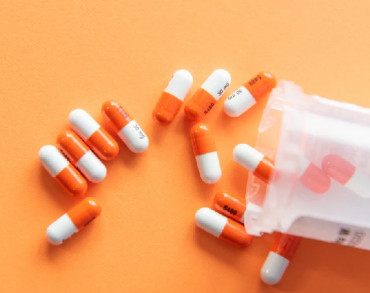

Often medications that are usually prescribed to individuals diagnosed with attention deficit hyperactivity disorder are taken by others as a "study aid."
People without attention deficit hyperactivity disorder (ADHD) sometimes take drugs like dextroamphetamine (commonly called “dexies”) or methylphenidate (e.g. Ritalin, Concerta) to stay alert and increase focus. But there are physical and mental health risks associated with using the drug outside of prescription guidelines, including dependence, withdrawal, and death from overdose.
While dextroamphetamine and other stimulants do promote wakefulness, studies indicate that students who take amphetamines to help with grades actually have lower average grades than students who do not take these stimulant medications.
These drugs are Class B drugs, the same as MDMA. That means possession carries a maximum penalty of three months in prison, and/or a maximum fine of $500.
What are dexies?
Dextroamphetamine is one of a class of drugs called amphetamines, which act as central nervous system stimulant. It is primarily prescribed to manage symptoms of ADHD and is sometimes used as a treatment for narcolepsy, a condition in which a person may fall asleep without warning.
For a while, dextroamphetamine was sold under the brand name Dexedrine, which likely led to the term dexies being used to refer to illicitly obtained amphetamines.
While these prescription drugs have legitimate medical applications for conditions such as ADHD and narcolepsy, they are sometimes taken by people who do not have a prescription or who take the drug in higher or more frequent doses than prescribed.
Why are they called study drugs?
Some high school and university students believe stimulants like dextroamphetamine will help them achieve better grades by allowing them to stay up late and focus while studying for exams or working on assignments. For this reason, ADHD medications including dextroamphetamine, Adderall, and Ritalin, are sometimes referred to as “study drugs.”
Prescription amphetamines like dextroamphetamine increase the activity of dopamine and norepinephrine, which are neurotransmitters associated with pleasurable feelings and the brain’s reward system. In people with ADHD, the increased signalling provided by these neurotransmitters helps improve memory, attention, wakefulness, and the ability to concentrate. It can also help them feel calmer, less impulsive, and less restless.
But, in people without ADHD, it can result in a heightened sense of concentration, less need to sleep, and increased mental performance.
What are the risks of taking dexies?
While the effects of taking dextroamphetamine can be influenced by a number of things, the possible effects can include:
- Fast heartbeat
- Decreased appetite
- Tremors
- Headaches
- Trouble sleeping
- Dizziness
- Upset stomach
- Dry mouth
- Feeling anxious
More serious effects can include:
- Allergic reaction including skin rash, itching, hives, or swelling of your face, lips, or tongue
- Heart problems including chest pain or tightness, high blood pressure or fast, irregular heartbeat
- Trouble breathing
- Confusion, hallucinations
- Seizures, especially in people with a history of seizures
- Vision problems such as blurred vision
- Circulation problems, for example fingers or toes that feel numb, cold, or hurt
- Muscle twitching
- Losing balance or coordination
- Overdose
People who snort crushed dexies are also at risk of suffering bleeding or irritation in the nasal passages, and damage of the nasal septum. Injecting dexies meanwhile increases the risks associated with intravenous drug use, including the risk of infection.
Long-term use may also lead to insomnia, hostility, paranoia, malnutrition, seizures, stroke or heart attack.
It’s possible to overdose on dextroamphetamine and other amphetamine-based prescription drugs, and the risk increases when mixed with alcohol or other drugs.
These substances are also associated with dependence and withdrawal symptoms, even after a short period of use. Someone who uses dextroamphetamine to improve mental ability while studying may find themselves taking the drug more and more frequently to keep their perceived competitive advantage going. Eventually they may believe they can’t study or complete an important assignment without using dextroamphetamine (psychological dependence), or they may feel excessively sluggish and tired when not using the drug (physical dependence).
If you’re worried about your own use of dexies, or that of a friend, you can reach out to the Alcohol Drug Helpline on 0800 787 797, or text 8681 for support. They’re available 24/7, all calls are free and confidential. You can also chat to the Alcohol Drug Helpline team online through the website.
While no drug use is safest, there are some steps that can help reduce the risks.
- Avoid redosing. This increases the chance of negative effects, like overdose.
- Avoid mixing drugs, especially other central nervous system depressants like other benzos, opioids, and alcohol.
- Have a plan – as with all drug use, it’s better to have people around that you trust and who have knowledge of first aid.
Always call an ambulance if someone:
- is unconscious;
- stops breathing;
- has a seizure;
- is extremely agitated for longer than 15 minutes;
- has chest pain or breathing difficulties for longer than 5 minutes.
If you’re worried about your own drinking or drug taking, you can reach out to the Alcohol Drug Helpline on 0800 787 797, or text 8681. You'll be able to speak with a trained counsellor who can provide you with helpful information, insight and support. They’re available 24/7, all calls are free and confidential. You can also chat to the Alcohol Drug Helpline team online through the website.
Latest Articles
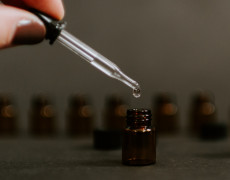
24 Apr 2024
Increased harm linked to the use of GBL-type substances in New Zealand
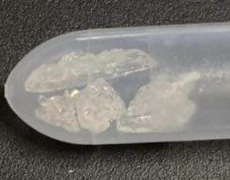
23 Apr 2024
Industrial chemicals sold as methamphetamine
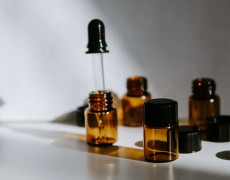
15 Apr 2024
Thinking of using GBL/GHB?

12 Apr 2024
Ketamine and bladder damage – know the risks
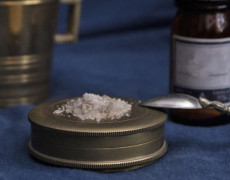
8 Mar 2024
Synthetic cathinones explained

22 Feb 2024
What’s happening with synthetic cannabinoids?

31 Jan 2024
What is tuci?
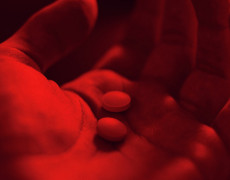
19 Jan 2024
Answering some common questions about MDMA

10 Jan 2024
Understanding the risks of the comedown

5 Jan 2024
Looking after your mental health
